The early implementation of Customer Relationship Management (CRM) in real estate focused primarily on contact management. It was used to track potential clients, set-up reminders for follow-ups, and digitize business cards. It was all about the visibility and organization of data. However, the advancements in technology led to the transformation of CRM into a more robust and versatile tool, allowing for more efficient and productive communication between real estate agents and clients.
As technology continues to transform how we do business, real estate professionals need every advantage they can get to stay ahead. Today, Customer Relationship Management (CRM) systems have become essential tools in the industry, allowing agents and brokers to manage their leads, stay in touch with their clients, and keep track of transactions, all in real-time.
You can even enhance the way you use your CRM system by integrating it with IFTTT, our powerful automation platform with over 800+ different web services you can leverage your real estate business process. In this blog post, we’ll take a deeper look at what a CRM in real estate is, the best CRM softwares, and how one can help your business thrive.
Table of Contents
- What is CRM in real estate?
- What are the benefits of using CRM in real estate?
- Organized data management
- Sales pipeline management
- Increased productivity
- Better communication
- Best CRM softwares
- Pipedrive
- Salesforce
- Boosting your real estate game with CRM and IFTTT
What is CRM in real estate?
A CRM is a software that helps businesses manage their customer relationships. It is a database for all client interactions, providing information about the client, tracking their progress, and organizing contacts in one place to manage their journey effectively. In real estate, a CRM system streamlines day-to-day operations, organizes leads and clients, schedules appointments, and manages transactions easily.
Using a CRM in real estate is essential for generating more business and improving the value of your client relationships. It tracks leads, organizes relevant data, analyzes information, and runs reports to gain insights into potential clients' behavior. A CRM system can identify hot leads that are more likely to convert into a sale and help improve communication with existing clients.
What are the benefits of using CRM in real estate?
If you are a real estate professional, you cannot afford to overlook the power of CRM systems. The benefits of using this software are numerous, from streamlining processes to increased productivity. Let’s take a deeper look at some of the benefits of using CRM in real estate.
Organized data management: A CRM system provides a single database to store all their leads, contacts, and customer information. It eliminates the need to use other systems like Excel sheets, making data organization much easier for agents. The system makes it simple to access and report on the information, including contact details, property preferences, and communication history. Therefore, agents can quickly find and access the data they need to close a deal or get in touch with their prospects.
Sales pipeline management: CRM helps in managing the entire sales pipeline, from lead generation to closing. Real estate agents can use CRM software to monitor each customer’s position in the sales process, track their status, and move them down the pipeline through the different stages of the buying process. This feature helps agents to provide a better customer experience and manage their sales pipeline more effectively.
Increased productivity: CRM software helps real estate professionals to automate their daily routine tasks, and thus streamline the process. For instance, scheduling appointments, sending email reminders, setting goals, and generating customized reports are made easy.
Better communication: Communication is key in the real estate industry. Clients expect transparency and frequent communication updates from their agents, and CRM can help deliver just that. With CRM, agents can keep track of their communication history with the clients, making future communication more personalized. As a result, agents can build trust and create long-term relationships with their clients more easily.
Best CRM softwares
With so many options available in the market, it can be overwhelming to determine which one is the best fit for you. We’ll introduce you to two CRM softwares that you can consider: Pipedrive and Salesforce. Both of these CRM software solutions have their own features and advantages, but it’s up to you to understand your own needs and preferences in order to choose the best solution for your real estate business.
Pipedrive
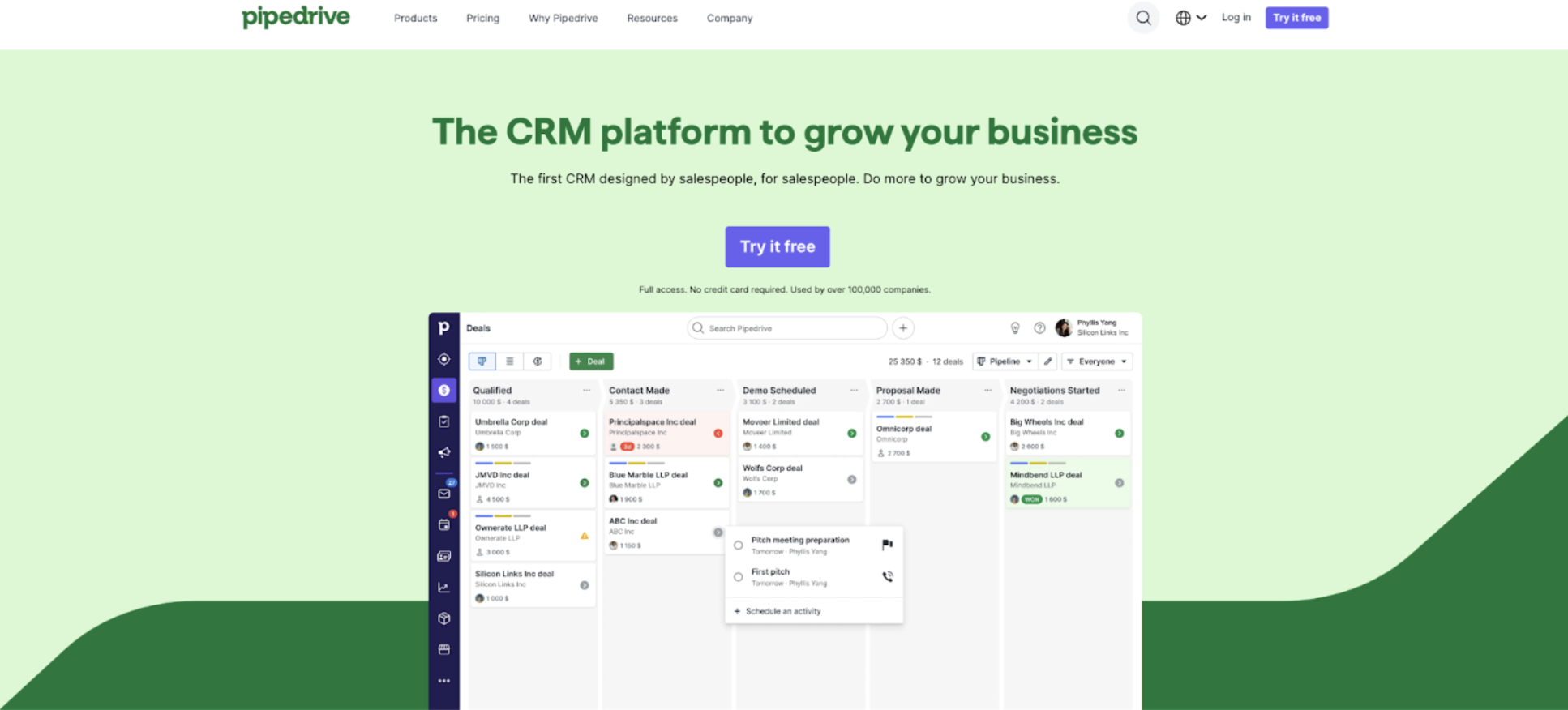
Pipedrive is a cloud-based sales CRM software that helps small businesses manage their sales processes effectively. It was designed to help businesses visualize their pipeline and focus on the right deals at the right time. It offers a user-friendly interface that allows businesses to track and manage leads, deals, and contacts. Additionally, Pipedrive offers a customizable sales dashboard allowing you to tailor the interface to your needs and preferences.
Pipedrive can be a viable option for real estate brokers, agents, and property managers. Here are some ways the software can benefit real estate businesses:
Pipeline management: Managing the buying and selling process can be challenging without the right tools. Pipedrive's pipeline management, which includes a critical deals feature, makes it easier to track deals, monitor progress, and identify critical stages in the sales process.
Client relationship management: Keeping track of client interactions is critical in the real estate industry. Pipedrive allows businesses to manage their interactions, including phone calls, meetings, and emails, in one place.
Lead management: Pipedrive can help track leads and ensure timely follow-ups. With lead management features such as lead scoring, prioritization, and segmentation, brokers can concentrate their effort on the most promising leads.
Pricing Users can choose up to 5 different plans, each offering certain features based on the price point.
Essential ($14.90/billed annually or $21.90/billed monthly): For those who are just looking to get organized and set up simple sale processes, this is the best option. The key features to this plan are: lead, deal, contact, calendar, and pipeline management, seamless data import, 400+ integrations, and 24/7 multi-language support.
Advanced ($27.90/billed annually or $37.90/billed monthly): The Advanced plan comes with features offered in the Essential plan plus full email sync with templates, open and click tracking, group mailing, automations builder like email sequences, meeting, email, and video call scheduling.
Professional ($49.90/billed annually or $59.90/billed monthly): The Professional plan includes all features of the Advanced plan and adds more advanced features such as revenue forecasting, document and contract management with e-signatures, streamlined lead routing and account access controls for teams, and extra deal and field customization options.
Power ($64.90/billed annually or $74.90/billed monthly): The Power plan includes all the features in the Professional plan with project planning, tracking and delivery, phone support, CRM implementation, and scalable control of account permissions and visibilities.
Enterprise ($99/billed annually or $119/billed monthly): The Enterprise plan is the most advanced plan with no limits that includes all the features of the Power plan along with enhanced security preferences, unlimited reports and customizations, and double the number of automations per user.
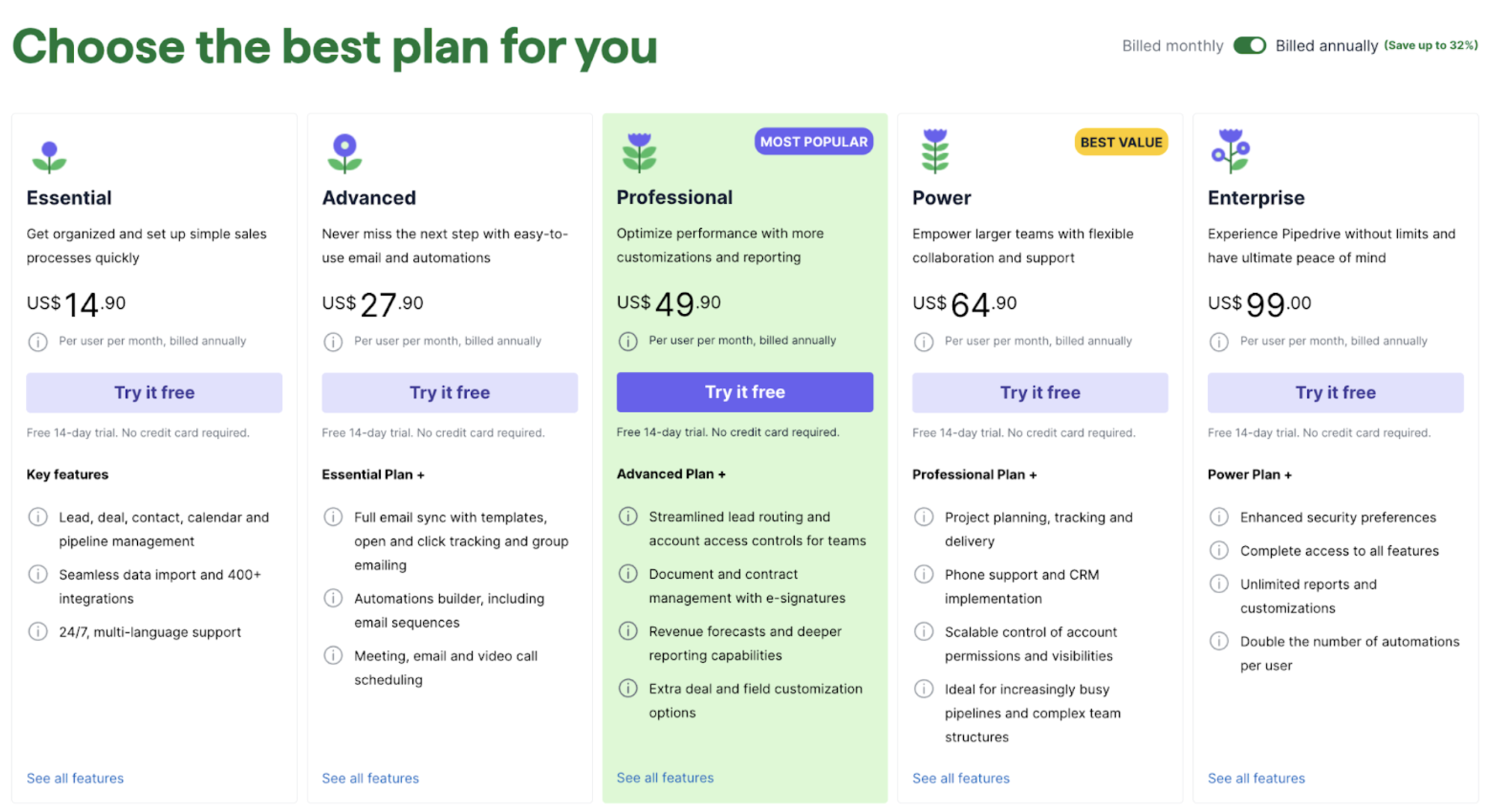
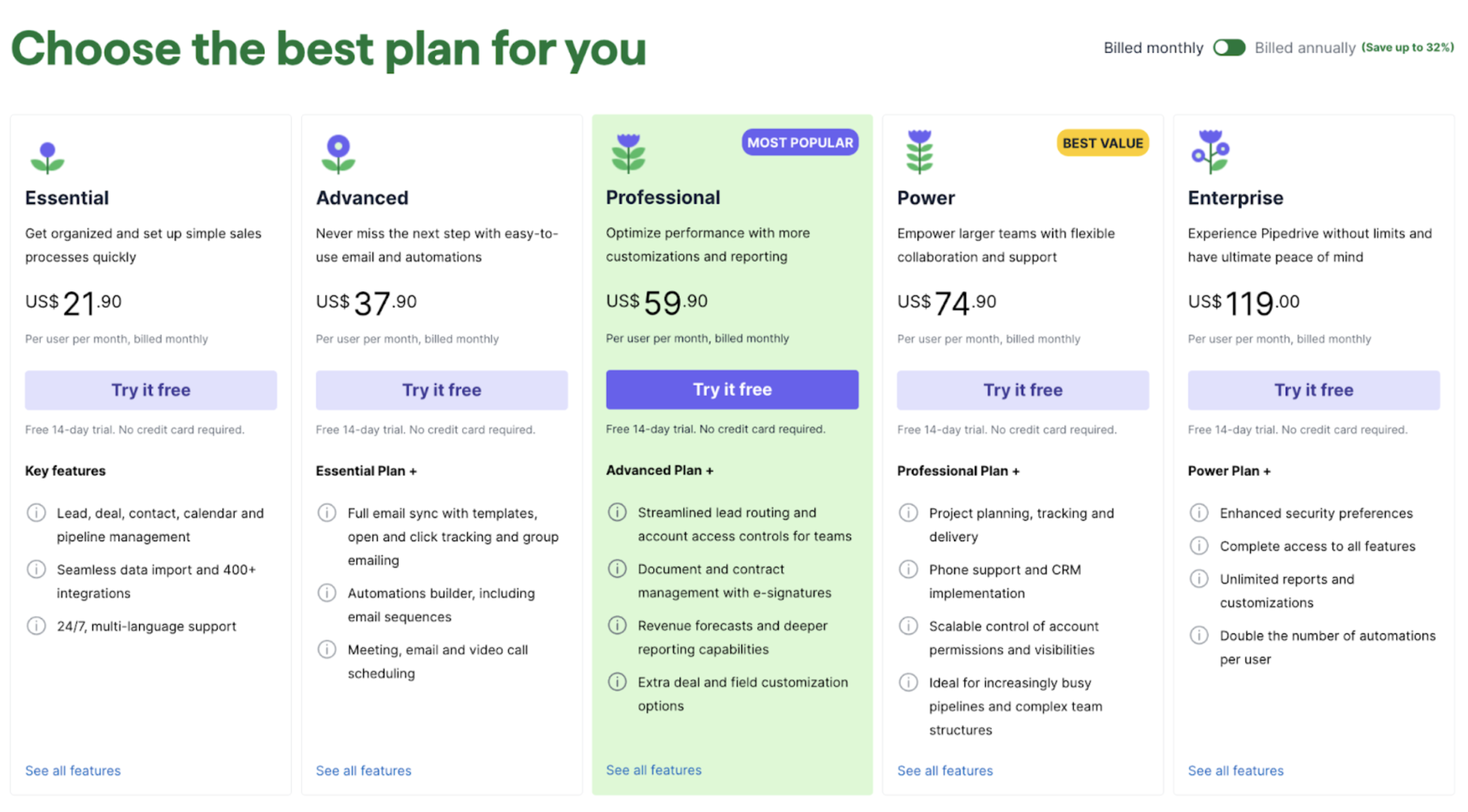
If you want to learn more about what Pipedrive is and how it works, check out our blog How to use Pipedrive for your business. We dive deeper into the features they offer and how you can integrate it with IFTTT.
List of IFTTT Pipedrive Integrations:
-
Add new Pipedrive deals to Google Sheets rows

-
Add new Pipedrive deals to Asana as tasks

-
Add Mailchimp subscribers when Pipedrive deals change to match a filter

-
Create Trello cards from new Pipedrive deals

-
Send an email in Gmail when deals reach a certain stage on Pipedrive

Salesforce
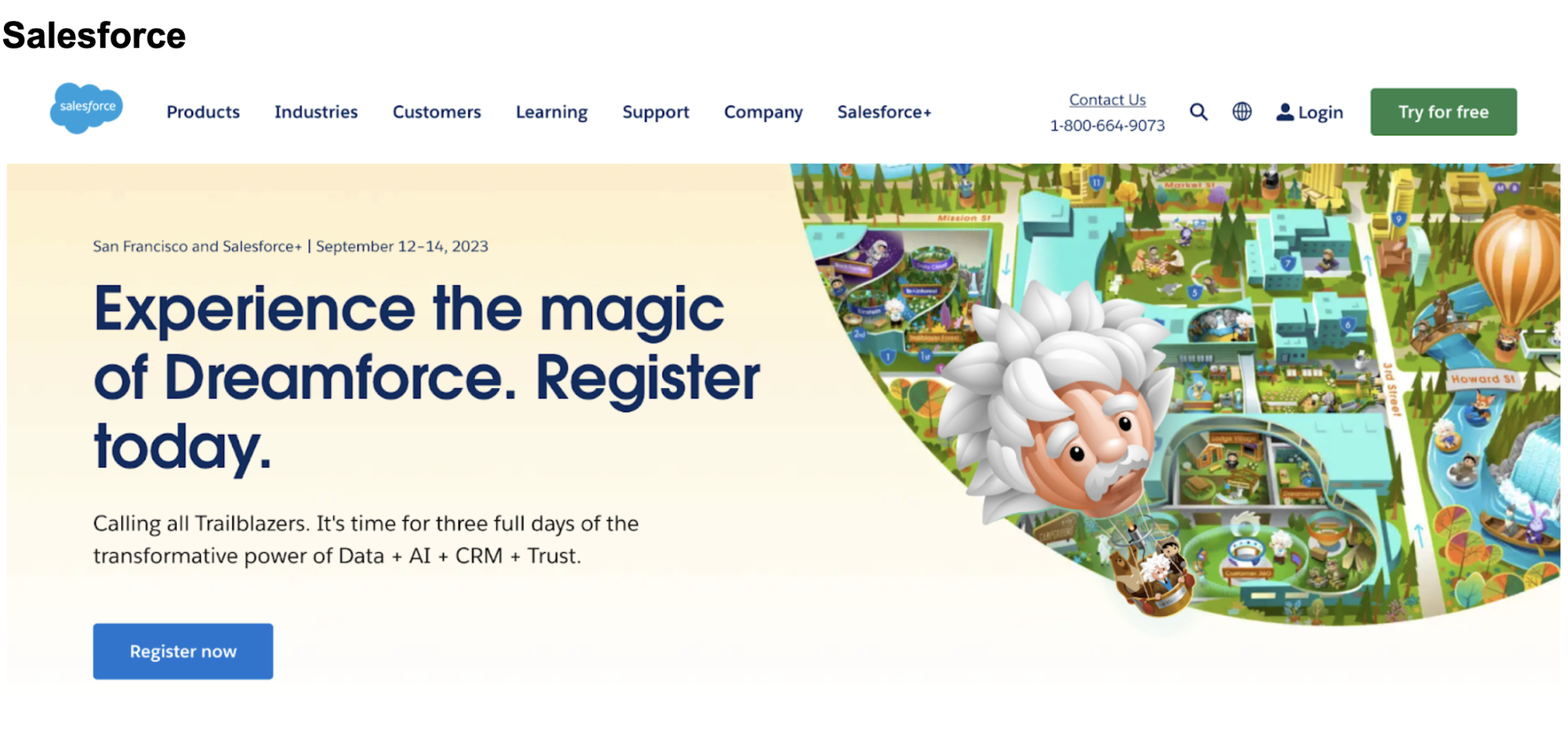
Salesforce is a Customer Relationship Management (CRM) platform that helps businesses manage their customer interactions and sales operations more effectively. Salesforce provides a comprehensive system for managing customer engagement, opportunities, and deals, creating greater operation efficiency, and driving more leads and sales.
Salesforce provides a range of tools that real estate companies can leverage to improve their sales operations. These tools include Customer360, Sales Cloud, Salesforce Maps, Marketing Cloud, and more. Real estate agents can use these tools to access client data and track the sales cycle, from the initial interaction to closing. By having a complete 360-degree view of customers, agents can tailor their communication to match their needs and engage with them more effectively.
Pricing Users can choose up to 4 pricing plans: Starter ($25/user/month): The Starter plan is a CRM package designed for small teams with marketing, sales, and service functionalities. Professional ($105/user/month): The Professional plan includes everything in the Starter plan in addition to service console apps, service contracts and entitlements, and pipeline and forecast management. Enterprise ($190/user/month): The Enterprise plan includes everything in the Professional plan in addition to more advanced features that can be extensively tailored to provide comprehensive sales and service coverage. Unlimited ($355/user/month): This plan includes everything there is, giving users unlimited sales and service CRM power.
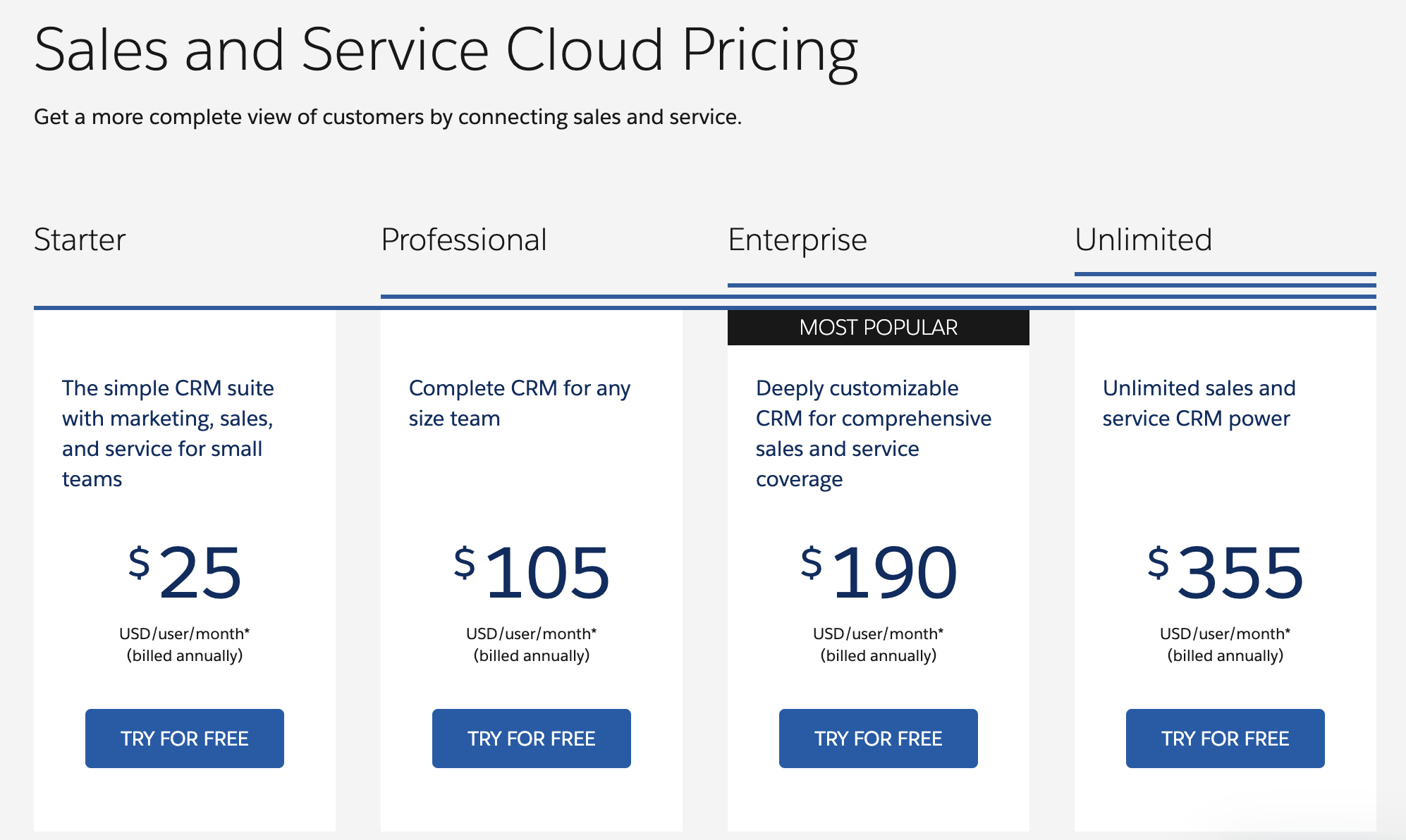
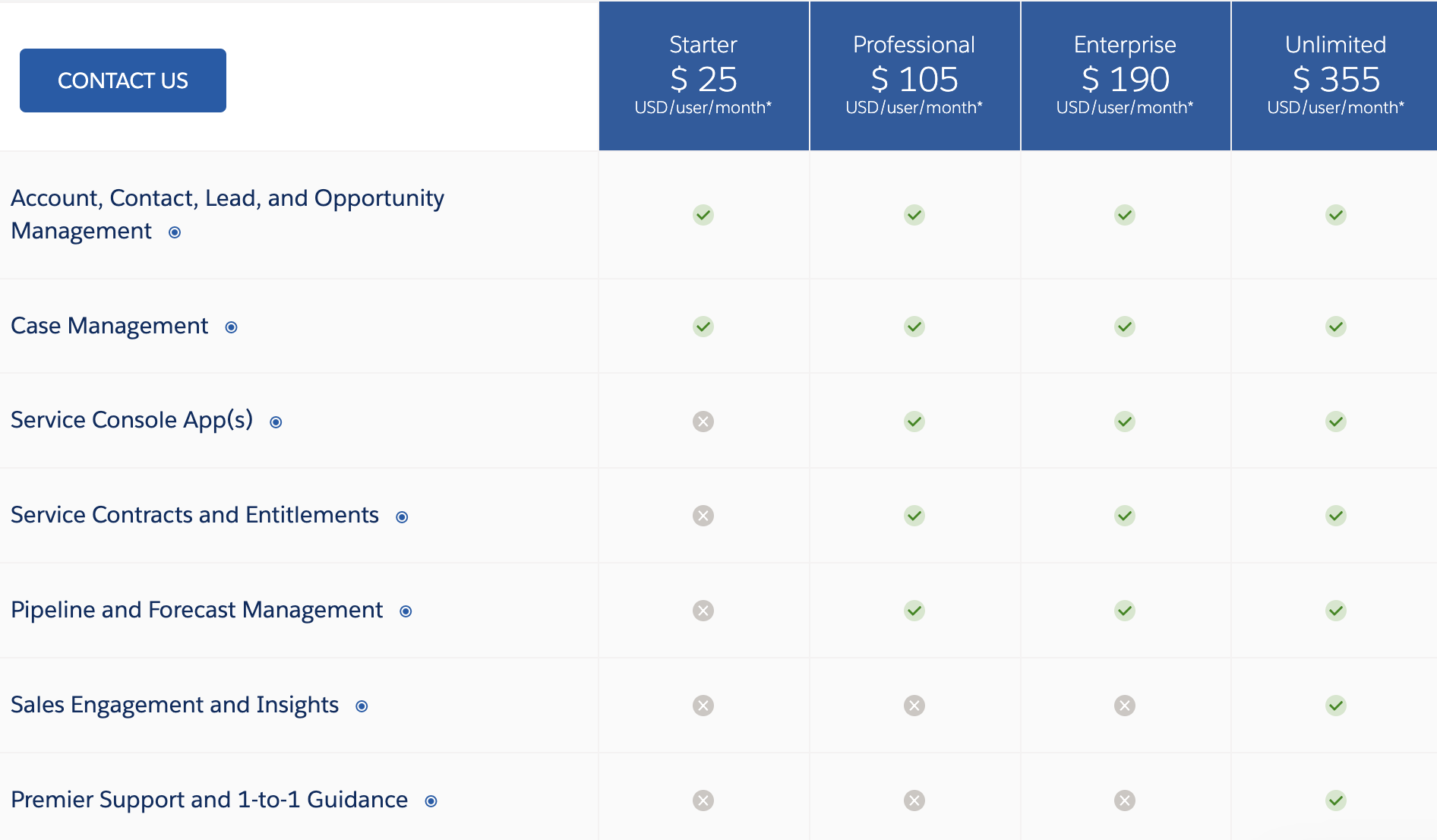
Boosting your real estate game with CRM and IFTTT
Together, CRM and IFTTT can be a powerful combination. A CRM solution can help maintain a database of clients, organize information on properties, and track leads. With the help of a CRM, agents can make informed decisions and offer personalized service at every stage of the buying or selling process. By connecting with IFTTT, you can convert even more leads in record time with our lead management automations. For example, you can add new leads from Facebook Lead Ads to Google Ads customer lists or when you get a form submission in Google Forms, save their information in Mailchimp. CRM and IFTTT work together to help real estate professionals maintain a data-driven approach to their work. By using these tools, agents can streamline their business, reduce the time spent on mundane and repetitive tasks, and provide customers with the service they expect. So, what are you waiting for? Join IFTTT for free today!


